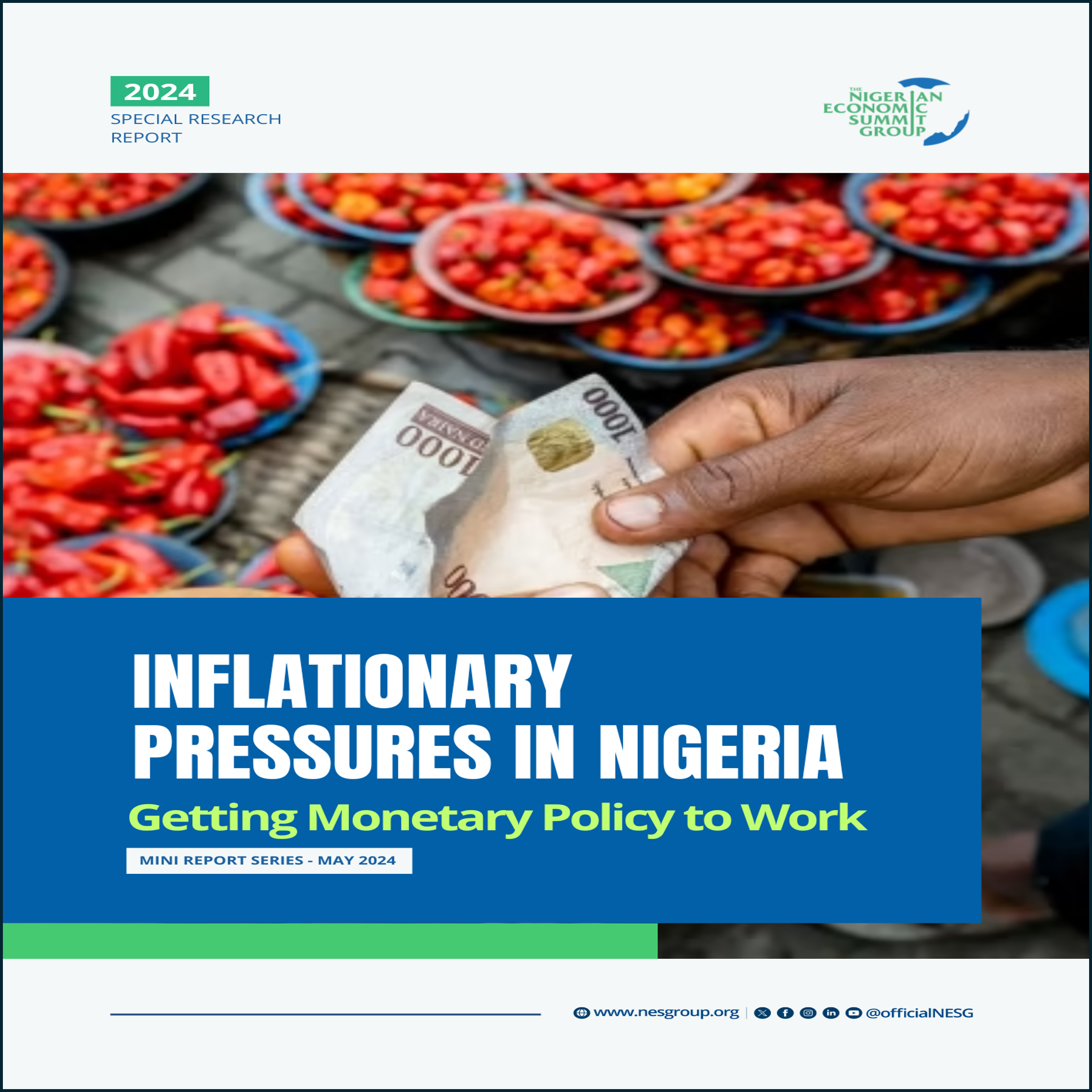Posted Fri, May 24, 2024 5:58 PM
Download Report (229 downloads)
The inflation rate movement has been a significant macroeconomic indicator of grave concern for all economic agents. Its adverse impacts are felt by all economic agents, creating a significant economic distortion. Inflationary pressures engender severe macroeconomic instability, arbitrary redistribution and misallocation of income (resources), and a significant alteration in the economy's growth trajectory. At the household level, it devastates the purchasing power of the household and labour income, erodes the values of savings and investment, and amplifies the poverty level.
At the firm level, it escalates operating costs, erodes the profitability and competitiveness of producers, dilutes the real returns on investment, and disincentivises capital accumulation. Similarly, rising inflation escalates the cost of governance and investment in public goods at the government level, washing away the value of government earnings and decimating the value of the economy's currency. Theoretically, inflation is said to be everywhere a monetary phenomenon. Indeed, it is a monetary phenomenon, as rising inflation means money losing its real value and purchasing power over time, irrespective of the drivers.
As such, the primary responsibility of price stability rests with the monetary authority. However, this does not undermine the contributions of many other factors that drive inflationary pressures, which will be discussed going forward. In Nigeria, monetary targeting has been a major strategy of the Central Bank of Nigeria (CBN) over the years to control inflation. This strategy involves adjusting various monetary tools, such as the Monetary Policy Rate (MPR), Cash Reserves Ratio (CRR), etcetera, to reign in the growth of the money supply and subdue inflationary pressure.
However, despite the monetary interventions, the monetary authority, in its relentless and complex efforts, appears incapacitated to reign in the rising price levels in Nigeria as inflationary pressure amplifies. Over the past decade, Nigeria has witnessed a tremendous rise in price levels. The annual average inflation rate rose from a single digit of 8.0 percent in 2014 to 24.7 percent in 2023. As of April 2024, the monthly inflation rate reached 33.7 percent – a record height in 27 years (see Fig. 1). The food component experienced higher inflation, crossing 40.5 percent in April 2024. Meanwhile, core inflation (all Items less farm produce and energy) rose to 26.2 percent.
The rise in the inflation rate has been motivated by a plethora of economic events, both domestic and foreign, that have escalated the price levels. This especially followed the COVID-19 pandemic, which concurrently constrained the global supply chain and motivated expanded government spending on relief measures. In the face of unrelenting hawkish interventions, the persistent rise in the inflation rate sparks debates on the efficacy of monetary measures. Therefore, this report seeks to analyse the inflation mechanism in Nigeria, determine how effective the current strategy has been, and highlight potential courses of action.
